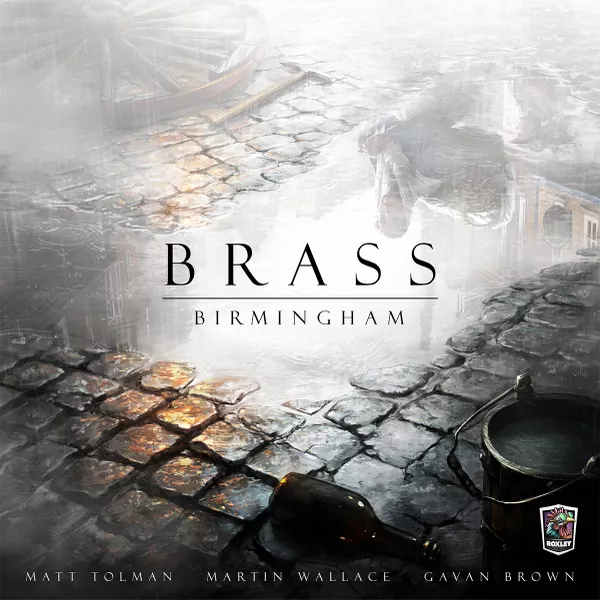Welcome to this week’s review! This week I’m taking a look at the number one rated game on BGG. So without further ado, let’s jump into it.
Brass: Birmingham
- Designers: Gavan Brown, Matt Tolman, Martin Wallace
- Publisher: Roxley
- Complexity: Heavy
- Time: 60-120 Minutes
- Players: 2-4
- Main Mechanisms: Network/Route Building, Hand Management
Do you ever get that cozy feeling when returning to something you love like your favorite movie or TV show that you re-watch on repeat? For me, it’s normally the Football Manager video games (RIP Football Manager 2025); however, I recently got that feeling when I pulled Brass: Birmingham off the shelf for a random game night.
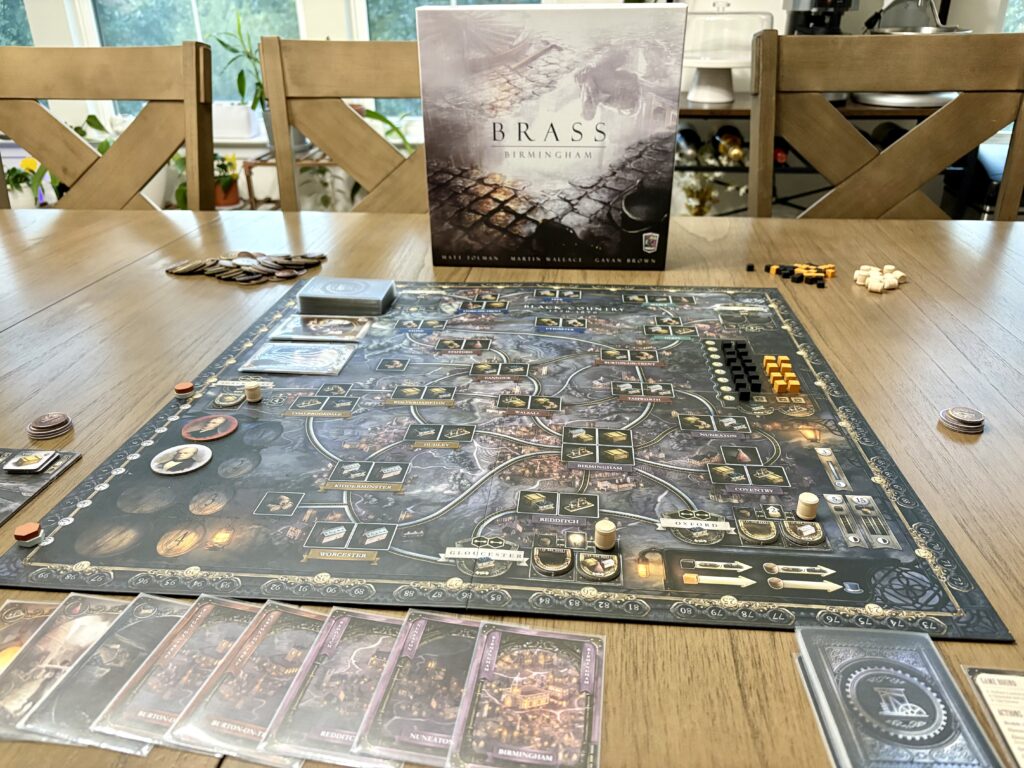
I never played the original version of Brass or Brass: Lancashire; however, Birmingham has been in my collection since its release almost seven years ago. At the time, my board game collection was considerably smaller, so Birmingham often hit the table (or should I say the kitchen island of our small one-bedroom apartment). It’s probably been at least two years since I played Birmingham, and having played so many recent medium-heavy euros, I was curious to see if I still viewed the game in the same light; and the recent announcement of Brass: Pittsburgh totally wasn’t a contributing factor in wanting to revisit Birmingham.
If you’ve been living under a rock or have somehow never heard of Brass: Birmingham, it’s the sequel to Martin Wallace’s 2007 Brass. The game is set during the industrial revolution and takes place over two eras: canal and rail. During the game, players utilize cards that correspond to types of buildings and cities to build a network, place industries, and sell goods. Also, if you’re skeptical of how much art has improved in board games over the last decade, then I encourage you to look up images of the original Brass and compare them to images of Lancashire and Birmingham.
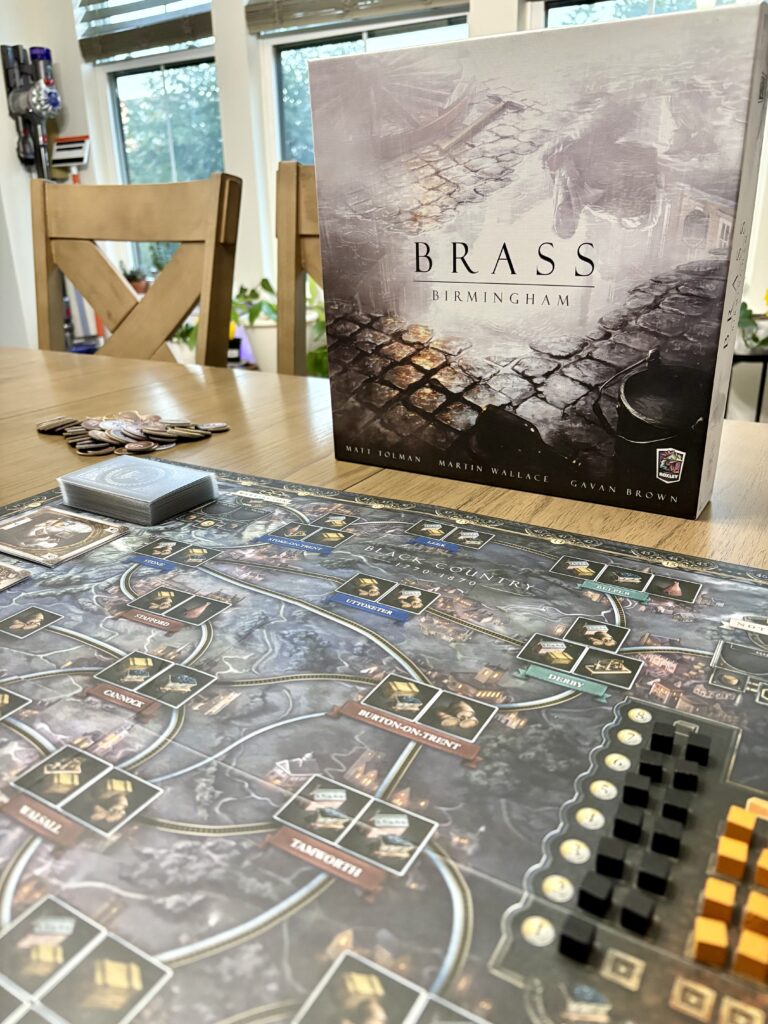
The first thing I noticed coming back to Birmingham was how smooth and streamlined the game felt. The rulebook is fairly small compared to other medium-heavy weight games in the genre, and the actions in Birmingham are all fairly straightforward. The trickiest part for new players to grasp is understanding what is considered part of your network and how the different resources can be used. For example, coal has to be connected to your network to be used, whereas iron does not.
I know the theme around the industrial revolution isn’t the most unique these days, but the artwork in the game is absolutely stunning. Both the central board and the player boards also come in both a light and a dark side. Mechanically, both sides are the same, and while the lighter side is probably a bit easier to read, the night esthetic on the darker side is gorgeous.
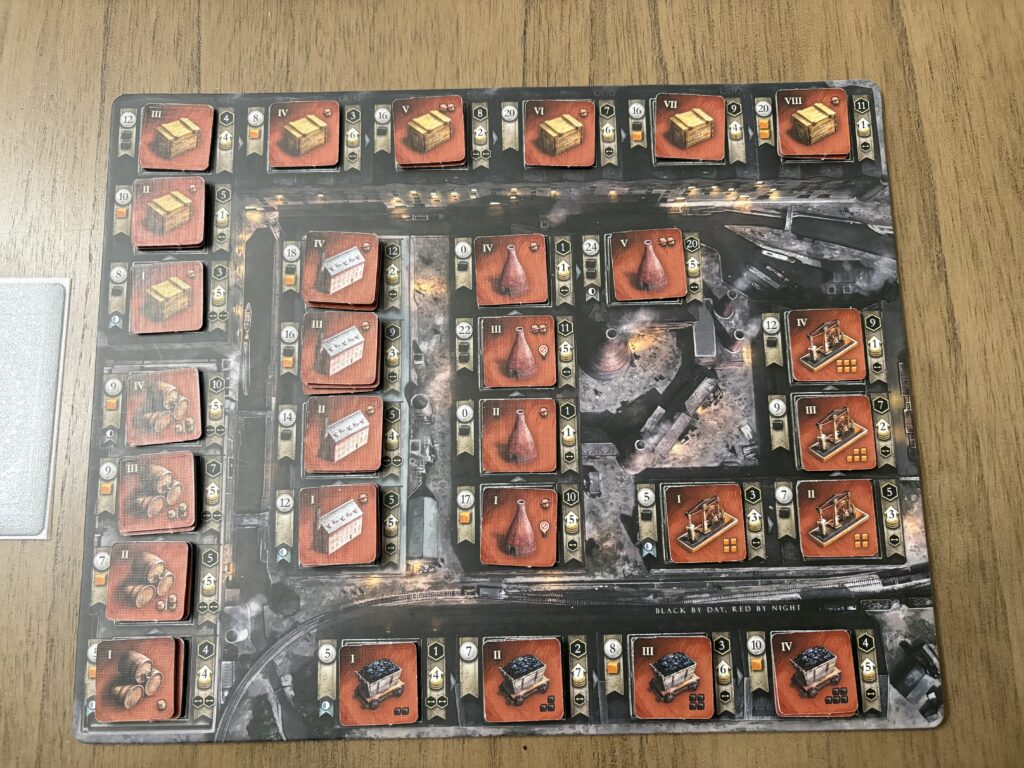
I also enjoy the level of player interaction in the game. There are some moments when another player could negatively impact you by building somewhere you wanted, but overall the game doesn’t feel overly tight in this regard. Equally, and if not more so, are the positive interaction moments. You are free to use other players’ resources (provided you are able to, based on network requirements), which benefits both players. For example, maybe I see that another player is planning to sell goods, but there is not enough beer to do so. I could decide to build a brewery in a place where that player could use it to sell their good. In exchange for that player using my beer, I also get to flip my industry over to score, so we both benefit. Overall, this encourages players to take note and possibly adapt to what others are doing because it can be mutually beneficial.
The game also scales surprisingly well based on the player count. With fewer players, there will likely be less competition over spots, but the number of cities also shrinks. Three or four players is likely ideal if you’re looking for the most interaction, but I’ve equally enjoyed the game at only two players. Sometimes I’m fine with giving up some of the interaction in exchange for a shorter game.
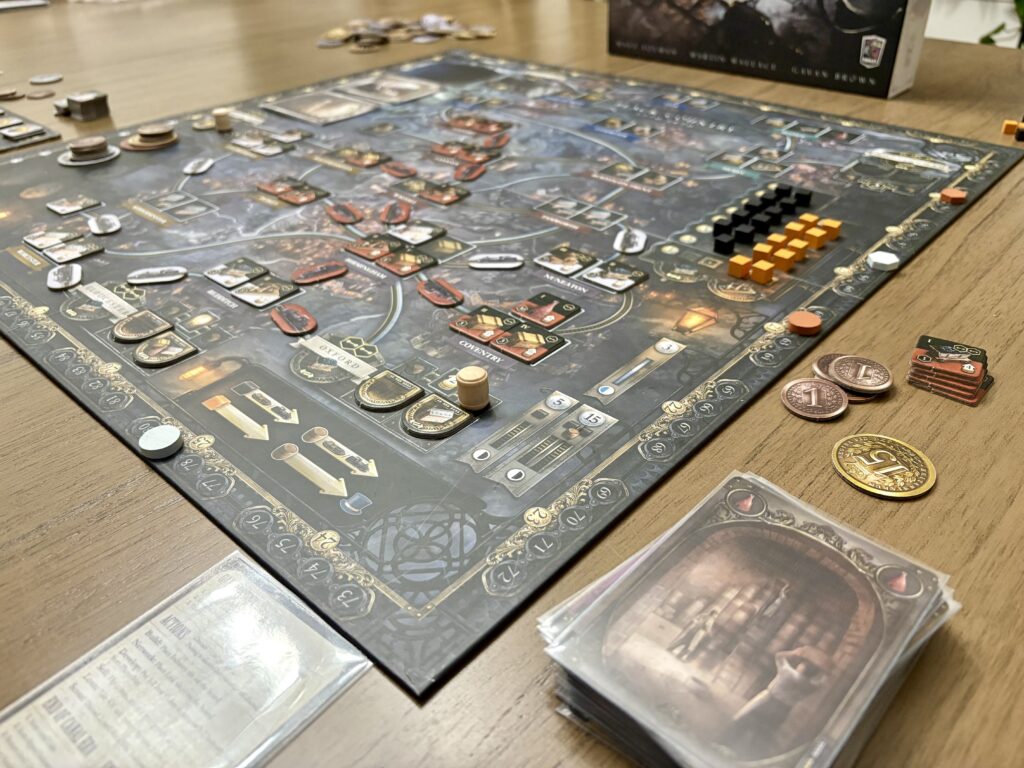
Outside of maybe the theme, if I were to guess why some players may have bounced off of Lancashire or Birmingham in the past, my guess would be the card system. For certain gamers, the card system could feel too restrictive, and they don’t like the luck involved with blindly drawing cards from a deck. I can understand that complaint, and it can be frustrating when you keep drawing cards that are counter to your plans, but I think part of the fun of the game is being able to adapt to the cards you are dealt. I like that there’s an element of tactical decision, and if your cards don’t align with your goals, one of the actions in Birmingham is to claim wild cards that allow you to build anywhere.
Another challenge I see with players that are new to Brass is understanding the era transition. The two eras can feel like you’re playing two games of Brass back-to-back. Since all of your links and almost all of your industries are removed at the end of the first era, it can be a shock to new players to see your network practically evaporate. In addition, the fact that links in the rail era now require coal and some industries cannot be built in the second era, makes the first couple of turns in the second era challenging if you’re unprepared. Personally, I like this added twist, but I can see why some players might not enjoy the era mechanism.
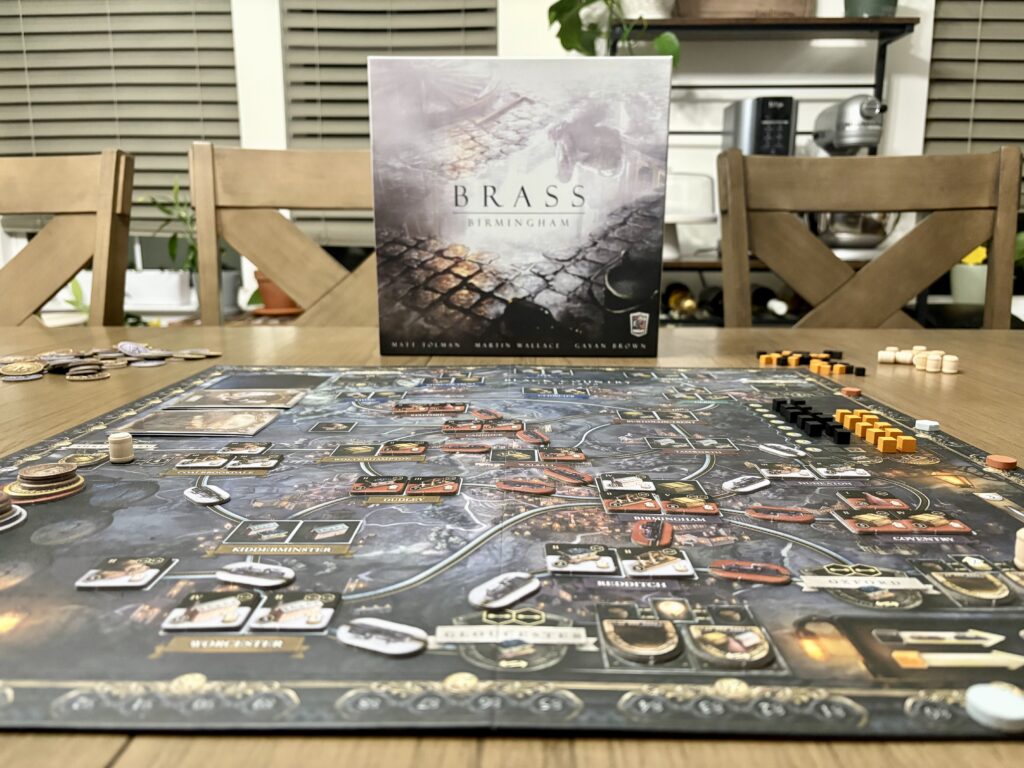
Is Brass: Birmingham my personal favorite board game? No, but I still really enjoy it. There’s just something warm and cozy about coming back to a game that hasn’t hit the table in a while and feeling like it still holds up in your eyes. If you enjoy medium-heavy weight euros and have somehow never given Brass: Birmingham a chance, then now is as good of a time as ever. Replaying Birmingham has me excited to see what changes Brass: Pittsburgh will bring.
With that, I’ll wrap up this week’s review! If you’ve played either Brass Lancashire or Birmingham, I’d love to hear your thoughts on either game? And are you excited for the upcoming Brass: Pittsburgh release? I’d love to hear your thoughts on any of the games I’ve mentioned or future content suggestions in the comments below. Happy gaming!
If you liked this post and want to be notified when new content is released, then follow me on Instagram @themeepledigest.
